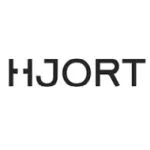In recent years the traditional employment relationships have evolved. Enterprises are incorporating new methods of recruitment based on market analysis, whilst also attempting to be less burdensome both economically and practically than traditional employment relationships. Although alternative methods of affiliation can be beneficial, they can also pose risks for groups that would otherwise benefit from labour rights and social protection afforded to employees.
In the light of this development the EU has proposed a new directive on platform work (the Directive). The Directive is aimed at so-called platform workers, this concerns individuals providing goods and services to clients or customers through digital platforms. The majority of individuals working in the platform economy are self-employed on paper, but in reality, often have an employment relationship with the platform. The classification of workers as self-employed leads to employers avoiding employer obligations and fiscal legislation.
The Directive and Rule of Presumption
To ensure a correct employment classification, the Directive has incorporated the rule of presumption. This presumption rule encompasses the understanding that workers will be legally presumed to be employees of a digital platform if their employment relationshop with the platform fulfills three of the seven criteria set out in the Directive that clearly differentiate the classification of self-employed workers and employees.
For instance, some of the key criteria includes whether the platform determines or sets an upper limit on remuneration the worker is allowed to receive for the work; whether the platform sets out rules for the workers regarding appearance, conduct, or job performance; whether the platform restricts the worker's ability to organize work independently, for example, through the ability to determine one's own working hours, time-off, the option to accept or decline assignments, or the ability utilize substitutes or subcontractors.
Impact of the New Directive on Norway
The impact the Directive will have on Norwegian enterprises is yet to be assessed. However, it will not highly impact how enterprises are conducted since a general presumption rule has already been adopted. The Norwegian presumption rule requires workers to be classified as an employee unless the employer can prove that the worker is overwhelmingly likely self-employed. The new legislation that will enter into force on January 1, 2024 will be applicable not only to platform workers, but also employees in general.
Simultaneously, the Norwegian government has adopted an expanded legal definition regarding an employee. The definition emphasizes the criteria that should be considered in the assessment of whether a worker is an employee or self-employed. Among others, the assessment should encompass whether the person continuously makes their personal labor available and whether the person is a subordinate through supervision, management and other company control.
The presumption rule and the more expanded definition of employee are just two of the many changes within Norwegian labour legislation aimed at strengthening labor rights. During the past year several legislative amendments have also been implemented in Norway regarding regulations for hiring from staffing agencies, including a legal definition differentiating between hiring out and consulting services agreements. The political reason is to achieve more permanent and direct employment in a two-party relationship between an employer and employee.
The content of this article is intended to provide a general guide to the subject matter. Specialist advice should be sought about your specific circumstances.



